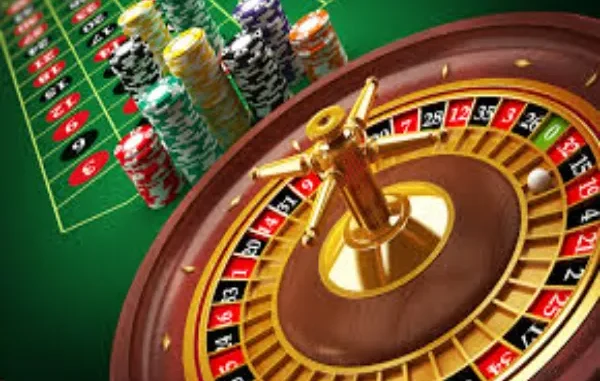
Roulette – the wheel with the ball that spins and bounces – is a true symbol of casino games and has been a favorite of many for a long time. As a game that can be enjoyed in the lavish surroundings of the classic casino or a virtual environment of an online platform, the curiosity about how roulette works and how roulette payouts are achieved are as engaging as the game itself. It is therefore about the physics and probabilities that apply to the wheel and ball of the roulette game as played in the casinos as well as the online versions of the game and how these components work in harmony to give the game the aspect of unpredictability and thus excitement.
The Physics of Traditional Roulette
If you’re interested in learning more about how traditional roulette works, you need to have an understanding of physics. In traditional roulette the dealer, or croupier, places a spinning wheel in one direction and rolls a small ball in the opposite direction around the outer ring called the ‘track. It has numbered as well as colored pockets on the wheel itself. This is because when the wheel is spinning the ball is no longer in motion and drops from the track and rolls around the wheel till it comes to rest in any of these pockets.
The result in the traditional version of the game is mostly dictated by the laws of physics. Factors such as the speed at which the wheel and ball are spun, the direction in which they are spun, the surface friction of the wheel, as well as the air resistance all contribute to the final destination of the ball. These physical features have been analyzed by professional players and researchers to come up with theories on how to predict the results of the next spin. However, the game remains random due to several non-controllable factors, such as imperfections on the ball or the wheel and the dealer’s strength and technique.
The Element of Randomness in Online Roulette
In the case of online roulette, the wheel and the ball, which are the primary controls are simulated and represented graphically. Here, the result of the game is often based on a set of algorithms referred to as Random Number Generators (RNGs). RNGs are used to generate a string of numbers, which are random and have no specific patterns, thus making the online games fair and random. These systems go through a series of tests and audits by external bodies to ensure that they are random and bias-free.
The Mathematics of Betting
It is important to note that the basis of both the normal and online roulette games is founded on the principles of mathematics probability. Roulette wheel is also an example of an independent event and this implies that the occurrence of the event in one round of the roulette wheel does not affect the occurrence of the event in the subsequent round. This aspect is important in determining the probabilities that determine the game.
For instance, in the European version of the game, the wheel contains thirty-seven pockets, numbers one to thirty-six and a single zero. The odds that the ball will stop on any given number are 1/37, which is equal to about 2. 70%. European roulette has only one zero while American roulette has an additional zero, making it have 38 pockets and hence the probability of the ball falling on any number is about 2. 63%.
The probabilities are important in influencing the strategies of the players when it comes to betting. As with any other roulette variant, bets made are of two types – inside bets that involve specific numbers and small groupings of numbers, have high pay-outs but low chances of winning, and outside bets that involve a bigger range of numbers but come with low pay-outs.
Strategies: The Martingale System
There are several strategies that most people use in an attempt to control the amount they risk and maximize their chances of winning. There are many bets and strategies in roulette but the most famous is the Martingale system of betting, in which the bet is doubled every time a loss is incurred. The belief is that the first victory will offset all the earlier defeats and also make a profit that is equivalent to the initial stake. But this system, like all others, has no possibility to avoid the house edge that is present in the probabilities of the game. Strategies like the Martingale also face the danger of running into table limits, which means the strategy can never be played to the expected level.
The House Edge
Knowledge of the house edge is an essential thing that any roulette player should be conversant with. The advantage of the house simply refers to the average amount of money that the casino gains per bet, which in the case of roulette is incorporated into the existence of zero (and double zero in the American version). In European roulette, the house edge is about 2. It is slightly higher in European roulette, which is about 7% and in American roulette it is approximately 5%. 26% The difference is evident over the long term and erodes the overall profitability of players.
Conclusion
Roulette has simple rules, a complex scientific principle, and the element of luck that makes the game so appealing. Whether one sees a physical ball bouncing through a wheel or a digital ball landing on a pocket, the essence of the game is the thrill of the unknown. This knowledge of the science and mathematics of roulette can be most useful in learning how to play the game optimally. However, the fact that to win or loose depends on the spin of the wheel makes roulette, in essence, a game of luck.
Leave a Reply